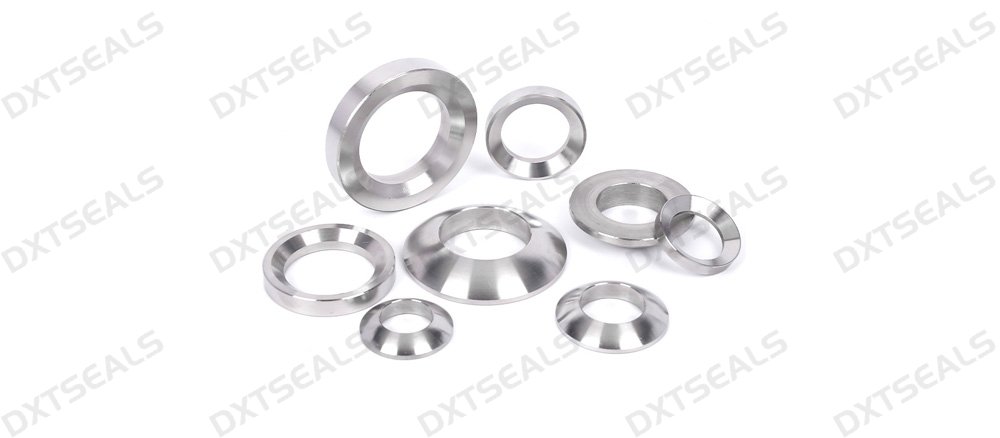
Metal washers play a critical role in various industrial applications, especially in demanding environments. Their durability, precision, and resistance to extreme conditions make them indispensable in industries such as aerospace, oil and gas, and heavy machinery. This article explores the manufacturing processes behind metal washers and examines their performance in challenging operating conditions.
Key Manufacturing Processes for Metal Washers
Metal washers are produced through a variety of manufacturing techniques, each designed to meet specific application requirements.
1. Stamping
Stamping is one of the most common methods for producing metal washers.
- Process: A metal sheet is placed under a stamping press, which uses a die to cut out the desired washer shape.
- Advantages: High efficiency, cost-effective for large-scale production, and precise dimensional control.
2. Machining
For applications requiring tight tolerances, washers are produced through CNC machining.
- Process: A metal blank is shaped into the desired washer dimensions using precision tools.
- Advantages: High accuracy, suitable for custom designs, and capable of producing washers with intricate geometries.
3. Laser Cutting
Laser cutting is ideal for creating washers with complex designs or when working with specialized materials.
- Process: A high-powered laser cuts through the metal sheet to form the washer.
- Advantages: Exceptional precision, minimal material waste, and fast turnaround for small production runs.
4. Forging
Forged metal washers are designed to withstand extreme mechanical stress.
- Process: Metal is heated to a high temperature and shaped using compressive forces.
- Advantages: Increased strength and durability, suitable for heavy-duty applications.
5. Heat Treatment
Post-production heat treatment enhances the mechanical properties of metal washers.
- Purpose: Improves hardness, tensile strength, and resistance to wear.
- Application: Essential for washers used in high-stress environments.
Material Choices for Metal Washers
The performance of metal washers in special conditions largely depends on the materials used. Common options include:
1. Stainless Steel
- Properties: High corrosion resistance, excellent strength, and good performance in extreme temperatures.
- Applications: Aerospace, marine, and chemical processing industries.
2. Carbon Steel
- Properties: High strength and wear resistance, cost-effective.
- Applications: Automotive and heavy machinery sectors.
3. Copper and Brass
- Properties: Good thermal and electrical conductivity, corrosion resistance.
- Applications: Electronics, plumbing, and HVAC systems.
4. Titanium
- Properties: Lightweight, extremely strong, and resistant to corrosion and high temperatures.
- Applications: Aerospace and medical industries.
5. Nickel Alloys
- Properties: Exceptional corrosion and heat resistance.
- Applications: Oil and gas, power generation, and chemical processing.
Performance of Metal Washers in Special Conditions
Metal washers are designed to perform reliably under extreme conditions. Here are some examples of their applications:
1. High-Temperature Environments
- Washers made from stainless steel or nickel alloys maintain structural integrity in temperatures exceeding 500°C.
- Applications: Turbine engines, exhaust systems, and industrial furnaces.
2. High-Pressure Systems
- Forged and heat-treated washers can withstand immense pressure without deformation or failure.
- Applications: Hydraulic systems, pipelines, and heavy machinery.
3. Corrosive Environments
- Materials such as titanium and stainless steel resist corrosion from chemicals, saltwater, and other aggressive substances.
- Applications: Marine equipment, chemical processing plants, and desalination systems.
4. Cryogenic Conditions
- Some metal washers, such as those made from specialized alloys, retain their properties at extremely low temperatures.
- Applications: Cryogenic storage tanks, LNG transportation, and space exploration.
Factors to Consider When Selecting Metal Washers for Special Conditions
Choosing the right metal washer involves evaluating the specific operating conditions of the application. Key factors include:
1. Material Compatibility
Ensure the washer material can resist the environmental stresses, such as temperature, pressure, or chemical exposure.
2. Dimensional Accuracy
For high-precision applications, opt for washers produced through machining or laser cutting.
3. Surface Treatments
Coatings like zinc plating or anodizing can further enhance corrosion resistance and durability.
4. Load-Bearing Capacity
Verify the washer can handle the mechanical stresses without deforming.
Advantages of Metal Washers in Extreme Conditions
Metal washers outperform other materials in many industrial applications due to their:
- High Strength: Ability to withstand heavy loads and mechanical stress.
- Thermal Stability: Reliable performance across a wide temperature range.
- Longevity: Resistant to wear, corrosion, and environmental damage, ensuring extended service life.
- Customizability: Can be manufactured to meet specific industry requirements.
Applications of Metal Washers in Special Conditions
Metal washers are essential components in many industries, including:
- Aerospace: Used in aircraft engines and structural assemblies.
- Oil and Gas: Essential for sealing in high-pressure and corrosive drilling environments.
- Power Generation: Ensuring reliable operation in turbines and heat exchangers.
- Automotive: Providing secure connections in engines and suspension systems.
Conclusion
The manufacturing processes and material choices for metal washers directly influence their performance in special conditions. From high-pressure pipelines to corrosive chemical plants, metal washers deliver unmatched durability, precision, and reliability.
By understanding the manufacturing techniques and material options, industries can select the ideal washers for their specific needs, ensuring optimal performance and long-lasting solutions. For custom requirements, advanced production methods like CNC machining and laser cutting enable tailored solutions for even the most challenging applications.
